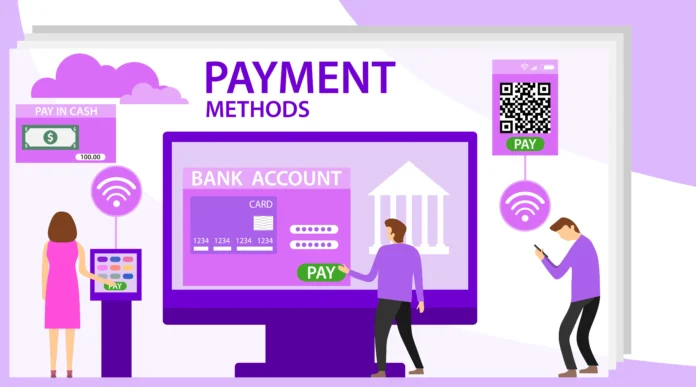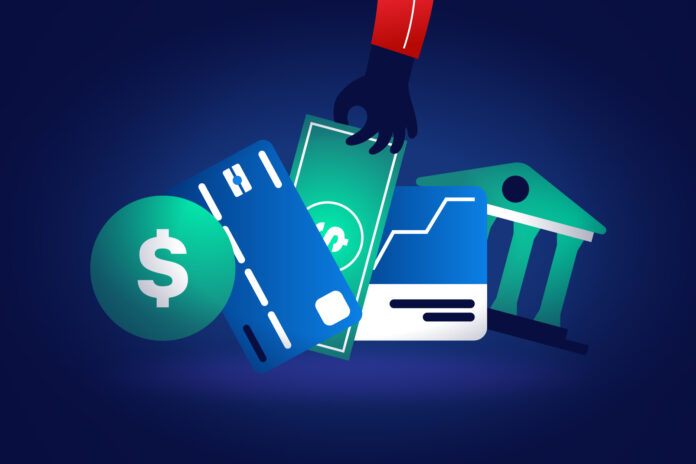Understanding payment fraud is crucial for maintaining the health and viability of businesses.
Payment fraud leads to significant financial losses, reputational damage, and legal consequences.
Recognizing various types of fraud and implementing protective measures is essential for safeguarding business operations.
Types of Payment Fraud

First, let us touch on the common types of fraud.
Credit Card
Credit card fraud involves the unauthorized use of credit cards for purchases or cash withdrawals. This type of fraud is prevalent and can be devastating for both consumers and businesses. Fraudsters use stolen credit card information to make unauthorized transactions, often resulting in significant financial losses.
Statistics show a rising number of credit card fraud incidents globally, emphasizing the need for robust security measures.
Businesses using portable card machines must ensure these devices are secure and monitor transactions closely to detect and prevent fraudulent activities.
Debit Card
Debit card fraud is similar to credit card fraud but typically involves unauthorized access to a cardholder’s PIN. This type of fraud can be more damaging as it directly impacts the cardholder’s bank account, leading to immediate financial losses.
Unlike credit cards, debit cards do not offer the same level of protection and recourse, making recovery of funds more challenging.
Businesses must be vigilant in protecting PIN entry systems on portable card machines to prevent unauthorized access and safeguard customer accounts.
Bank
Bank fraud involves deceptive practices to obtain money or assets from banks or financial institutions. Examples include fraudulent loan applications and account takeovers where fraudsters gain control of a legitimate account.
The impact of bank fraud extends beyond financial loss, often resulting in compromised sensitive customer information.
Businesses must implement stringent verification processes and monitor accounts for unusual activity, especially when using portable card machines to process transactions.
Wire Transfer

Wire transfer fraud occurs when unauthorized wire transfers are made through phishing or hacking. This type of fraud is particularly challenging to address due to the difficulty in recovering wired funds.
Fraudsters often use sophisticated techniques to trick individuals or businesses into transferring money to fraudulent accounts.
Businesses must educate employees on recognizing phishing attempts and implement robust security protocols to prevent unauthorized wire transfers, especially when transactions are initiated via portable card machine.
Check
Check fraud involves forging or altering checks to illegally obtain funds. Common methods include counterfeiting checks, altering check details, and check kiting.
Businesses are vulnerable to check fraud, especially those that rely heavily on paper transactions.
Statistics indicate a significant vulnerability to check fraud, with many businesses suffering financial losses. Implementing secure check-handling procedures and using portable card machines for transactions can reduce the risk.
Mobile Payment

Mobile payment fraud involves unauthorized transactions through mobile payment services. With the increasing use of smartphones for financial transactions, fraudulent activities have also risen.
Fraudsters exploit vulnerabilities in mobile payment systems to conduct unauthorized transactions.
Businesses must ensure their mobile payment platforms are secure and educate customers about potential risks. The use of portable card machines with secure mobile payment integration can help mitigate the risk of mobile payment fraud.
How Payment Fraud Happens
Next, it is important to know how these frauds happen.
Phishing
Phishing is a technique used to obtain sensitive information by tricking individuals into providing personal details through deceptive emails or websites.
Phishers often pose as legitimate entities, convincing victims to share passwords, credit card numbers, or bank account information.
Regular training and awareness programs can significantly reduce the incidence of phishing-related fraud, especially when using portable card machines.
Skimming
Skimming involves capturing card information at legitimate terminals using hidden devices. Skimmers are placed on card readers to steal card details during a transaction.
This type is common at ATMs, gas stations, and retail point-of-sale terminals. Businesses must regularly inspect card readers on portable card machines for tampering and use encrypted card readers to protect against skimming.
Training staff to recognize skimming devices and encouraging customers to report suspicious activity can also help prevent skimming fraud.
Identity Theft

Identity theft occurs when fraudsters use personal information to commit fraudulent transactions. This can involve opening new accounts, making unauthorized purchases, or obtaining loans using someone else’s identity.
Identity theft can have long-lasting financial and legal repercussions for victims.
Businesses must implement strong verification processes and protect sensitive customer information. Using secure payment methods on portable card machines and monitoring transactions for unusual activity can help prevent identity theft.
Chargeback
Chargeback fraud happens when customers dispute legitimate charges to receive a refund while keeping the goods or services.
This type is challenging for businesses as it results in financial losses and chargeback fees. Businesses must maintain thorough records of transactions and provide clear return and refund policies.
Implementing secure payment methods and verifying customer identity during transactions can reduce the risk of chargeback fraud, especially when using portable card machines.
Business Email Compromise (BEC)

Business Email Compromise (BEC) involves phishing emails targeting business employees to trick them into transferring money or sharing sensitive information. BEC scams are highly sophisticated and often involve impersonation of senior executives.
Businesses should implement strong email security measures and train employees to recognize phishing attempts. Regularly updating security protocols and using secure communication channels can help prevent BEC fraud, particularly when processing transactions through portable card machines.
Malware
Malware is malicious software designed to steal payment information or disrupt business operations.
Malware can be introduced through infected email attachments, websites, or software downloads. Once installed, it can capture keystrokes, monitor transactions, and steal sensitive information.
Businesses must use up-to-date antivirus software, implement regular security audits, and educate employees about safe browsing practices. Secure payment systems on portable card machines should also be used to prevent malware-related fraud.
Why is All of This Important?
Payment fraud poses a substantial threat to businesses of all sizes. Financial losses from fraudulent transactions can be staggering, often resulting in bankruptcy for small enterprises.
Beyond the immediate financial impact, businesses suffer from damage to their reputation, leading to lost customers and long-term revenue decline.
Legal consequences can also arise, particularly if a business fails to comply with industry standards and regulations designed to prevent fraud.









